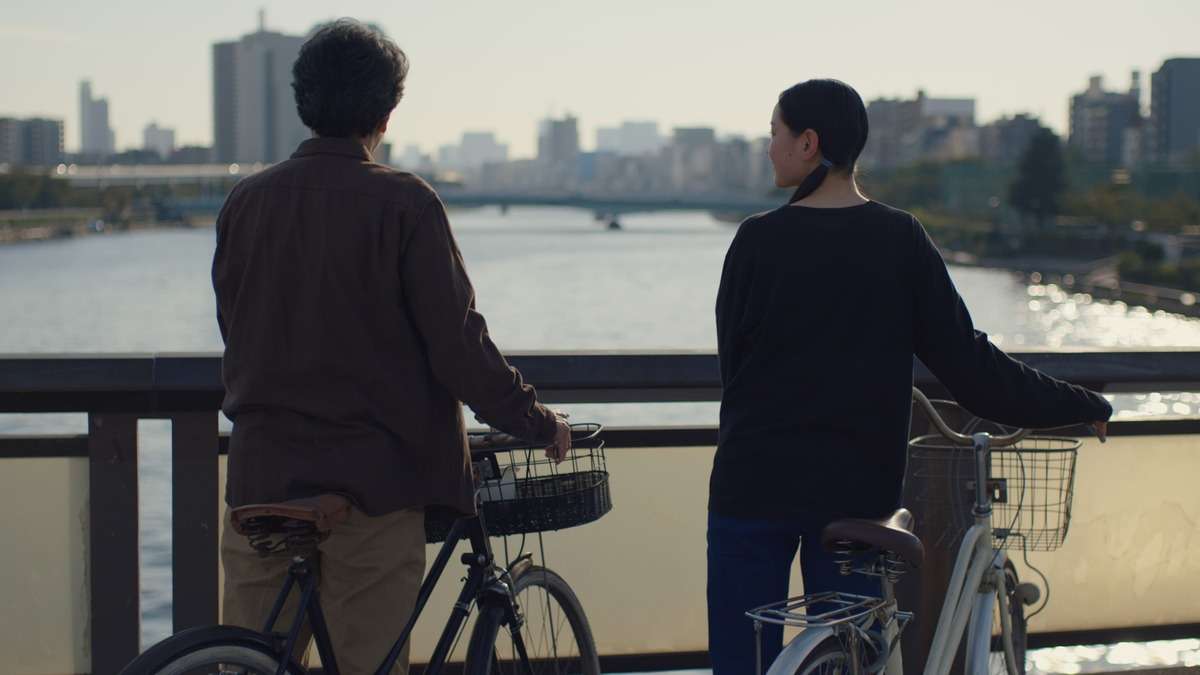Wim Wenders’ Perfect Days is an invitation to accept and cherish with humility and grace the miraculous in the everyday. It is a film that evokes the richness in the smallest of things in life we take for granted. There’s a deep-set languor with which Wenders concedes dignity to the most banal gestures, a profound respectfulness combined with an unceasing awe. There’s little place for cynicism in this film, but when sadness does sneak up, the effects are quietly volcanic.
Set in the Shibuya district of Tokyo, the film gently follows a middle-aged toilet cleaner going about his days. Every routine of the day he holds with an almost sacred regard. The film’s excellent opening sequence traces the outline of his regular day, right before dawn break, till he returns home after dinner. The very first striking thing about Hirayama (Koji Yakusho) is the precision and obsessive degree of diligence with which he embraces his life and work. He neatly folds away his futon at the start of the day, waters his plants, and sets out with his van carrying the various cleaning equipment. He has his lunch quietly at a bench as he photographs one particular tree top.
A local ragpicker who also is devoted to a tree, dancing around it, is the familiar face he acknowledges. He lives in a small place, keeping his needs minimal and desires even lesser to the point one wonders if he has any at all. It is easy to infer he isn’t someone with any further ambitions to upgrade his life. He is remarkably content and grateful. He greets each day and the morning sky with a bright smile, more than eager to welcome what it brings. There’s no resignation but a joyous openness to inhabiting the present.
His junior at work, Takashi (Tokio Emoto), is the chatterbox, exasperatedly complaining to someone else that Hirayama is a great colleague but not a great talker. Hirayama rarely exchanges a word, viewing any verbal communication as almost superfluous when he can get anything done otherwise with just a little cue. Unlike Takashi, who rushes through everything, Hirayama’s devotion to work runs paramount; he is a stickler for perfection, scrubbing off the tiniest of grease and dirt off the undersides, meticulously removing the slightest traces of muck.
A miffed Takashi asks him why he is so sincere, receiving just a smile for an answer. Hirayama gets pleasure in his work, refusing to see it as modest or something he can go lax with. There’s a deep sense of him being acutely aware that this is the life he willingly signed up for, chose and therefore will only take great pride in it, performing it to the best of his capabilities, leaving no scope for any slip-up. He leads a solitary life, barely having any relationships, his DVDs of music from the 70s and 80s being his strongest source of sustenance. Putting them on as he drives to and from work, the warmth of the familiarity in the music lifts him through the day.

One of the first times Hirayama actually begins to speak at length is when his niece, Niko (Arisa Nakano), arrives at his doorstep, having run away from home. The two had met years ago. Hirayama may have just forgotten details; it is a life he has put aside. Wenders does not divulge much about Hirayama’s past, his home, or his parents but a definitive rift comes through in soft strokes in the protagonist’s black-and-white dreams rich in twirling leaves. What led him to break ties with his family, we are never told, just a sparse glimpse conveyed by Niko about the irreconcilable differences between him and his sister.
Hirayama doesn’t elaborate on them but allows her to share some of his days with him. Initially, Niko is taken aback when she discovers her uncle’s job but quickly sidles to it. Their scenes are among the best in the film, brimming with oodles of heart, humanity, and a calm tenderness. Niko gets to share just a few days with her uncle, but the impact he makes, his reserved yet enveloping sense of wonder and utter immersion in the moment, is palpably tremendous.
The film derives much of its power from Yakusho’s low-key performance. He carries an unforced presence, as light as the leaf blows. His performance pours poignance and unspoken empathy into the film’s placid textures. However, the film does skate a tad too much neatness in stretches; the appeal to seize the present skids close at times to a niggling apolitical register, and I wonder if the film would have benefited more from a jab of bitterness and brittleness along with its determined serenity. Some scenes seem planted, especially an unnecessarily drawn-out climactic scene with a stranger. It is a bit of a strain on the film’s naturalist rhythms. However, the devastating final shot, squarely placed on Yakusho’s face, allays a lot of doubts.
★★★½
Perfect Days screened at the 29th Kolkata International Film Festival 2023.
Perfect Days (2023) Movie Links: IMDb, Rotten Tomatoes
Perfect Days (2023) Movie Cast: Kôji Yakusho, Tokio Emoto, Arisa Nakano
Perfect Days (2023) Movie Genre: Drama | Runtime: 2h 3Mins








